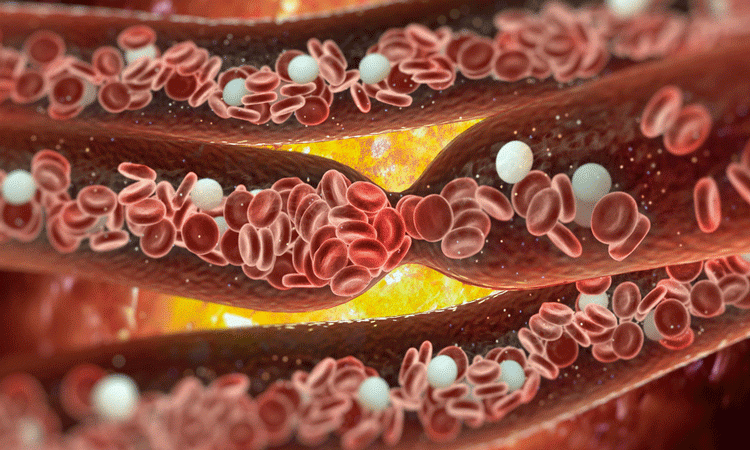Aortic plaques may contribute to liver disease progression
Posted: 3 August 2018 | Drug Target Review | No comments yet
Aortic atherosclerotic plaque inflammation may contribute to the progression of non-alcoholic fatty liver disease to liver fibrosis…


The current rising obesity crisis is associated to a wide range of diseases from overnutrition to atherosclerosis and non-alcoholic fatty liver (NAFL) disease, where fat is deposited in the liver due to reasons other than excessive alcohol use.
A new study has investigated the long-term effects of inflamed plaques on the progression of liver fibrosis. Plaques are a build-up of fat and cholesterol in the arteries and restrict the flow of blood to the heart.
The researchers measured aortic atherosclerotic inflammation, plaque size and composition using in vivo MRI scans in rabbits fed with ordinary chow, or a 1 percent cholesterol-enriched atherogenic diet.
The team quantified liver fat using magnetic resonance spectroscopy (MRS) over 3 months, while also measuring blood biomarkers in the animals.
They found that even small fatty deposits can lead to localised tissue inflammation, which can be potentially dangerous. Inflamed atherosclerotic plaques in arterial vessel walls are prone to rupture, forming blood clots which may lead to heart attacks or strokes that can be life-threatening.
“In the past, research focused on particular conditions of the vasculature or liver, but the contribution of chronic systemic effects and inter-organ communication to the pathogenesis of both diseases, and notably liver disease, remained understudied,” explained Professor of Physiology and Biophysics at Boston University School of Medicine, Dr James Hamilton.
The team identified that advanced inflamed vascular plaques were connected to progressive liver disease.
Professor Hamilton added that these observations support the understanding that chronic inflammation may impact ordinary internal functions and could lead to secondary conditions, such as rheumatoid arthritis, diabetes, cancer, Alzheimer’s disease and colitis.
“The good news of our study showing this inflammatory relationship between vascular and liver disease is that the systemic nature of these diseases also presents a valuable therapeutic approach, including the treatment with natural molecules that lower inflammation without unwanted side effects.”
The team have identified that molecules produced naturally in the body from omega-3 fatty acids, such as DHA and EPA in fish oils, are effective in treating both periodontal inflammation and atherosclerotic plaque inflammation. They now look to test the oral delivery of these molecules to further investigate the effects.
The results of the study were published in the Journal of Translational Medicine.
Related topics
Analytical techniques, Disease research, Magnetic resonance images (MRI), Nuclear Magnetic Resonance (NMR), Research & Development, Screening
Related conditions
Atherosclerosis, Non-alcoholic fatty liver disease, Obesity
Related organisations
Boston University School of Medicine
Related people
Dr James Hamilton



